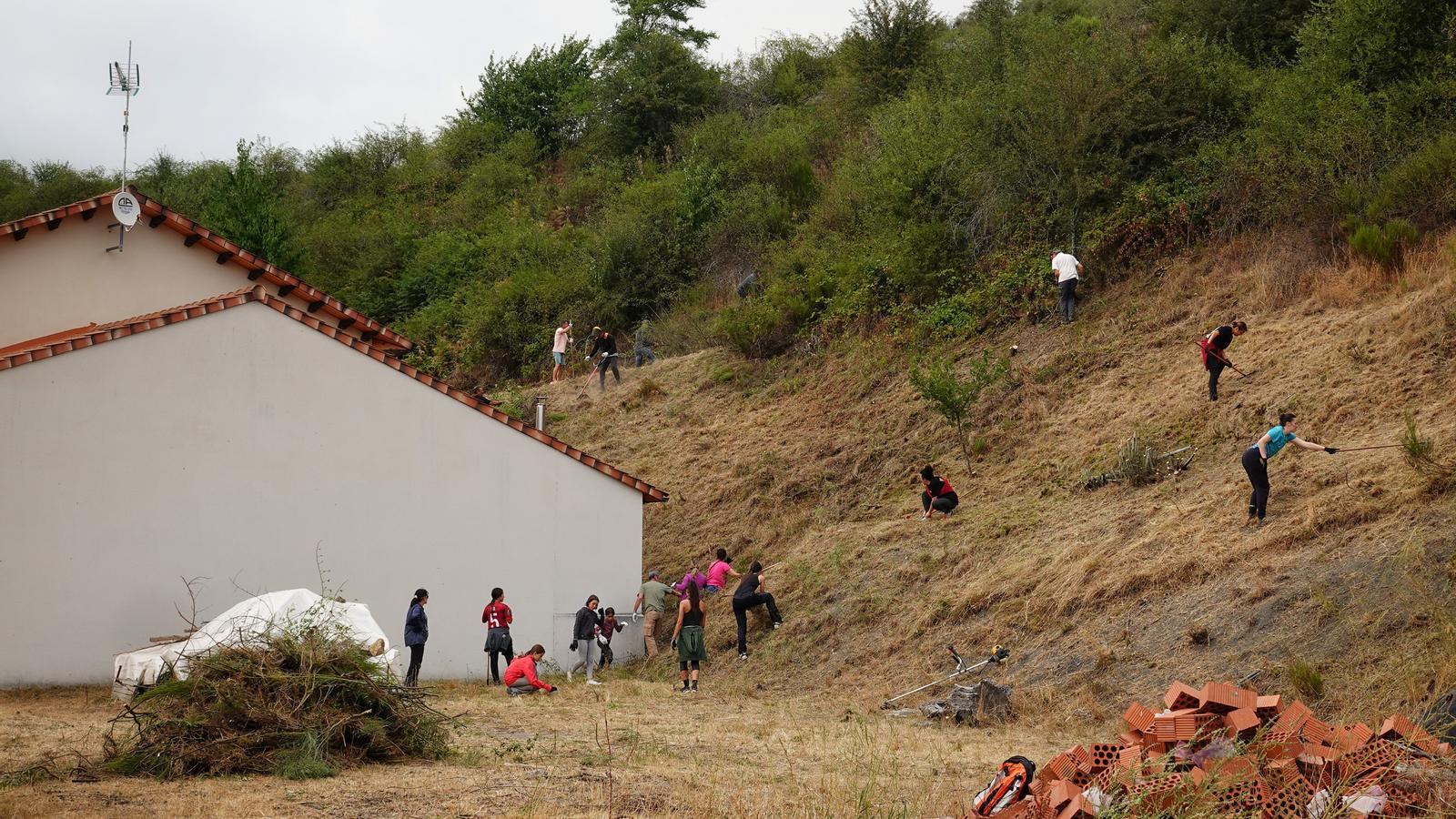More than 31,100 evacuees evacuated due to the fires in the state: "You're leaving with fear, with helplessness."
Those affected by the fires describe the fear and uncertainty faced with an evacuation order due to the threat of the flames.

BarcelonaThe threat of the fire that has been burning the western half of Spain for a week has forced the evacuation of more than 31,100 people in several provinces, while most of the fires burn out of control, fueled by high temperatures and that They have already devastated 200,000 hectaresThe main outbreaks are concentrated in Extremadura, Castile and León, and Galicia, where up to 6,000 National Police, Civil Guard, and Civil Protection personnel, as well as firefighter crews, have been deployed, awaiting the arrival of reinforcements sent from various European countries to help extinguish the fires. In northeast Zamora (Castile and León), six municipalities around Lake Sanabria are under lockdown and another six have been evacuated, with a total of 8,000 people affected.
The fires are giving firefighting teams no respite, and residents near the outbreaks are still closely monitoring the progress of the flames, which are generating large plumes of smoke that spread across much of the Iberian Peninsula. Evacuation orders are a very delicate moment because, despite the risk, authorities are seeing rejection and resistance from residents who fear that leaving could be a death sentence for their properties. Desolation and fear are compounded by accumulated fatigue.
"We never thought we might have to leave our home because of a forest fire," residents affected by the blaze in a municipality in Palencia told Efe. But there's no time to stop and think. "What your body wants is to stay and help, but they won't let you. And you leave scared, helpless, without knowing what will happen to your house," Manuel says. Personal documents, medication, some clothes to get through the next few days... That's all there is. "You're left with nothing, you don't know what to take," Pilar adds.
Temporary shelters
Once the evacuation is complete, city councils and emergency services must rush to coordinate efforts to organize temporary shelters for evacuees, opening sports centers or multipurpose halls to accommodate residents who cannot return home and have no alternative. "The worst thing is the helplessness of seeing the fire so close and not being able to do anything. They evacuate you and you think about your home. And about the people who have livestock, the animals, and those who stayed behind with their tractors to try to stop the flames," explains José María, summarizing the feelings of many residents.
But authorities insist that the evacuation "is not a whim," in the words of the Spanish government's deputy delegate in Salamanca, Rosa López, who calls for understanding and cooperation from the affected residents ordered to evacuate. According to Red Cross psychologist Montse Juárez, the evacuees arrive at the designated evacuation points "distressed, even in shock," but calm down after a few hours, although the feeling of uncertainty persists. "The hardest thing is accepting that your home, your life, may be in danger," the expert also stated in a statement to Efe.
With the fires out of control in the northwest corner of Spain, traffic on the high-speed rail line between Madrid and Galicia remained out of service throughout Monday, according to Renfe, which did run special trains on the Madrid-Zamora route at a higher frequency than expected. In addition, regular service lines connecting the affected provinces have also been affected.
Regarding the police investigations into the origin of the various fires that occurred from June 1st until midnight on Sunday, 31 people have been arrested and 92 more are under investigation.
